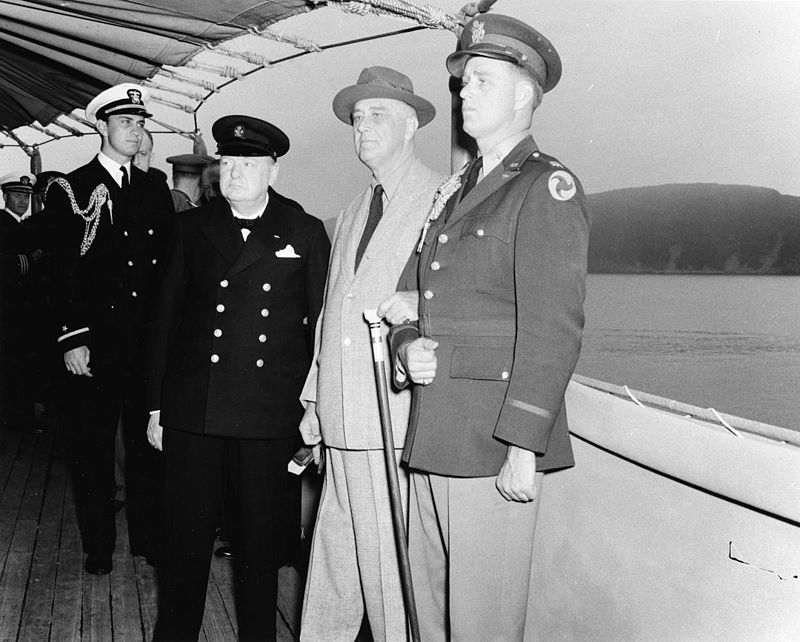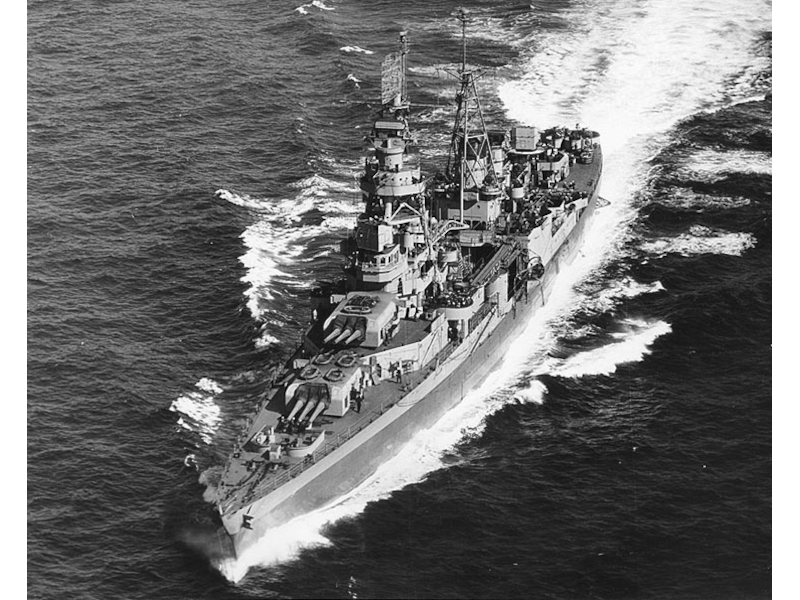The pole that hoists the United States flag over the Augusta University Summerville campus is actually a relic of history. It once was stationed on deck of the USS Augusta, a famous navy ship named for the Garden City.
During World War II, the Northampton Class USS Augusta would serve in all of the major seafaring Allied campaigns in the European theater of the war as the headquarters for generals waging those campaigns and would serve as host to two wartime presidents, Roosevelt and Truman.
MORE: Something You Might Not Have Known: Camp Hancock
The keel of the USS Augusta was laid in July of 1928, long before anyone knew another devastating world war was on the horizon. The ship was called a “treaty ship” due to the fact her design adhered to the 1930 London Treaty. It conformed to the treaty by being designated a heavy cruiser with 8-inch guns and only 10,000 tons displacement.
She was a small but mighty ship.
At first, Augusta sailed on what was called the Asian “great circle,” which was a route that took her from Seattle to Singapore as a means to parade her big guns and “show the flag” of the United States to any possible adversaries in the far east.
[adrotate banner=”31″]
However, events in Europe would have Augusta steaming into the history books. As the flagship of the U.S. Navy, the ship was called into the service of the president and was modified with a special elevator to accommodate Franklin D. Roosevelt, who used a wheelchair.
In August of 1941, shortly after Nazi Germany overtook France, Luxembourg and Belgium, the Augusta sailed with the president to Newfoundland for the Atlantic Conference with British Prime Minister Winston Churchill. The ship was captained by Admiral Chest Nimitz.
That mission was so top secret that a look-alike of the president was placed on the presidential yacht, Potomac, to fool the press into thinking Roosevelt was simply enjoying a short vacation.

Shortly after the conference, the December attack on Pearl Harbor would bring the United States into the war and Augusta’s guns would no longer fire blanks.
As part of Churchill’s plan to strike at the so-called “soft underbelly” of the Axis in North Africa, the Augusta participated in the invasion of that continent — codenamed Operation Torch — as a headquarters ship.
The ship would see its first wartime action off the shores of Casablanca.
The Augusta would later see action all over the Atlantic Ocean and acted to protect the RMS Queen Mary in her duty as a troop convoy ship.
In June of 1944, Augusta returned as the flagship carrying General Omar Bradley to the D-Day landings in Normandy. The ship faced heavy gunfire, but was able to ward off the German air attacks using both her 8- and 5-inch guns.
As the war in Europe ended, Augusta returned as a presidential vessel, taking Harry S. Truman across the Atlantic to the Potsdam Conference in Germany.
[adrotate banner=”54″]
While en route to Potsdam, Truman would make an announcement that would stun the world. Standing on the deck of the Augusta, Truman confirmed that he gave the green light to use nuclear weapons against the Japanese city of Hiroshima.
“It is an atomic bomb,” Truman said, “harnessing… the basic power of the universe. The force from which the sun draws its power has been loosed against those who brought war to the Far East.”
MORE: Something You Might Not Have Known: Old Richmond Academy
The famous ship earned three battle stars and continued on in Cold War service until she was sold and scrapped in 1959.
The ship is long gone now, except her flagpole, which remains at Augusta University, proudly flying the American flag.
… And that is something you might not have known
Scott Hudson is the Senior Reporter for The Augusta Press. Reach him at scott@theaugustapress.com.
[adrotate banner=”56″]











